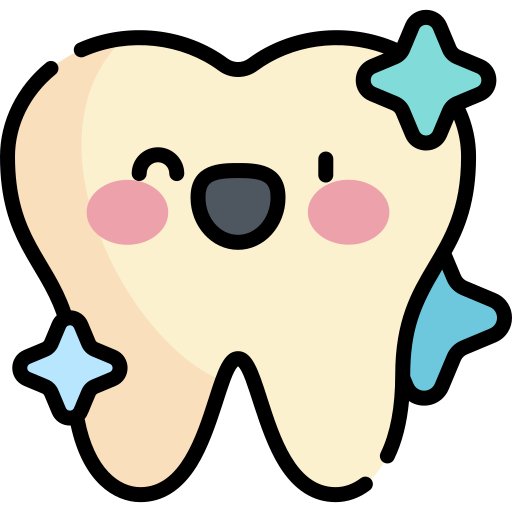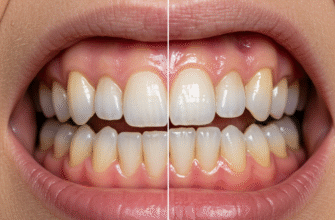We’ve all heard it, haven’t we? Someone flashes a less-than-perfect smile and sighs, “Oh, I just inherited bad teeth from my mom/dad/great-aunt Mildred.” It’s a common refrain, a seemingly easy explanation for cavities, gum troubles, or crooked alignments. It’s almost comforting, in a way, to think that some dental woes are simply pre-programmed, out of our hands. But is this dental destiny really set in stone by your family tree? Or is it a convenient myth that lets us off the hook a little too easily?
Untangling the Genetic Threads: What Do We Actually Inherit?
Now, let’s be clear: genetics do play a role in our overall oral landscape. It’s not entirely a fabrication. Think about it – you inherit your eye color, your height, your predisposition to certain hair types from your parents. Similarly, some aspects of your oral structure are indeed passed down. These can include:
- Tooth Size and Shape: The general dimensions and forms of your teeth can be inherited.
- Jaw Structure: The size and alignment of your jaw, which can influence how your teeth fit together (hello, overbites and underbites!), has a strong genetic component.
- Enamel Quality: The thickness and mineral composition of your enamel – the hard, protective outer layer of your teeth – can be influenced by your genes. Some people might naturally have slightly softer or thinner enamel, making them theoretically more susceptible to wear and decay.
- Saliva Composition: Believe it or not, the flow rate and chemical makeup of your saliva, which plays a crucial role in neutralizing acids and washing away food particles, can have genetic influences.
- Predisposition to Certain Conditions: There can be genetic markers that make some individuals more susceptible to conditions like aggressive periodontitis (a severe form of gum disease) or certain rare dental anomalies.
So yes, your genes lay down a certain blueprint. But here’s the crucial part: this blueprint is not a fixed sentence for “bad teeth.” It’s more like a starting point, a set of predispositions, rather than a guarantee of problems.
It’s important to understand that even if you have a genetic predisposition to certain dental issues, this doesn’t mean problems are inevitable. Proactive care and good habits can often significantly mitigate these risks. Don’t let “genetics” become an excuse for neglecting your oral health. This understanding can empower you to take better control of your dental future.
The Real Heavyweights: Lifestyle, Habits, and Hygiene
If genetics only plays a supporting role, then who are the main actors determining the fate of your teeth? The answer, overwhelmingly, lies in factors entirely within your control. Let’s break down these oral health game-changers.
Diet: The Sweet and Sour Truth
What you eat and drink has a monumental impact on your teeth. Sugary foods and drinks are a primary culprit. Bacteria in your mouth feast on these sugars, producing acids that erode your enamel, leading to cavities. It’s not just candy bars and soda; starchy foods like chips and bread can also break down into sugars that fuel these bacteria.
Acidic foods and beverages (think citrus fruits, vinegar, sports drinks, and even some wines) can also directly attack enamel, weakening it over time. While your saliva works to neutralize these acids, constant exposure can overwhelm its buffering capacity.
Consider this: If everyone in a family eats a diet high in sugary snacks and drinks, is it surprising they all experience similar dental problems? This isn’t genetics at play; it’s shared dietary habits, a pattern that can be consciously changed for better outcomes.
Oral Hygiene: The Daily Grind (The Good Kind!)
This one is non-negotiable. Your daily oral hygiene routine is your first line of defense against most common dental issues. This includes:
- Brushing: At least twice a day, for two minutes each time, with fluoride toothpaste. Technique matters here – gentle, circular motions, covering all surfaces of every tooth.
- Flossing: At least once a day. Flossing removes food particles and plaque from between teeth and under the gumline, areas your toothbrush can’t reach. Skipping this step is like washing only most of your body; the unreached areas will suffer.
- Mouthwash: While not a replacement for brushing and flossing, an antimicrobial or fluoride mouthwash can offer additional protection and help maintain a cleaner oral environment.
If these habits are inconsistent or poorly executed, plaque (a sticky film of bacteria) builds up, leading to tooth decay and gum disease, regardless of your genetic makeup. Consistency is truly key in this daily battle.
Lifestyle Choices: Beyond Food and Brushing
Other lifestyle factors can significantly influence your oral health:
- Smoking and Tobacco Use: These habits are disastrous for your mouth. They stain teeth, cause bad breath, dramatically increase the risk of gum disease (which can lead to tooth loss), and contribute to oral cancer.
- Teeth Grinding (Bruxism): Often stress-related or occurring during sleep, grinding can wear down enamel, crack teeth, and cause jaw pain. Awareness and potential interventions like nightguards are important.
- Using Teeth as Tools: Opening packages, biting nails, or holding objects with your teeth can lead to chips, cracks, and other unnecessary damage. Your teeth are designed for eating, not for being a multi-tool.
Access to and Utilization of Dental Care
Regular dental check-ups and professional cleanings are vital. A dentist can spot early signs of trouble – like small cavities or the beginnings of gum disease – when they are easiest and least expensive to treat. Professional cleanings remove hardened plaque (tartar) that you can’t get rid of with home care alone.
If someone avoids the dentist due to fear, cost, or a belief that their “bad teeth” are a lost cause, minor issues can escalate into major problems. This isn’t about genetics; it’s about proactive care and seeking professional support when needed. Overcoming these barriers can make a world of difference.
Scientific evidence overwhelmingly shows that dental caries (cavities) are primarily caused by the interaction of specific bacteria with fermentable carbohydrates (sugars and starches) on the tooth surface over time. While genetic factors might slightly influence enamel strength or saliva quality, they do not override the dominant role of diet and oral hygiene in cavity development. Regular plaque removal and limiting sugar intake are key preventive measures for everyone, forming the foundation of good oral health.
The “Family Tooth” Phenomenon: Learned Behaviors, Not Just Genes
It’s common to see dental traits run in families. If your parents both had numerous fillings, or if gum disease was prevalent among your older relatives, it’s easy to assume a genetic curse. However, what often “runs in families” are habits, environments, and attitudes towards dental health. These learned behaviors can create patterns that look like genetic destiny but are actually rooted in shared lifestyle.
Think about it:
- Shared Diets: Families typically eat the same meals. If the household grocery list is packed with sugary cereals, sodas, and processed snacks, everyone consuming that diet is at higher risk.
- Learned Hygiene Habits: Children often learn how (and how often) to brush their teeth by observing their parents. If parents have lax oral hygiene routines, their children might adopt similar habits, not through DNA but through daily example.
- Attitudes Towards Dental Visits: If parents express fear or negativity about going to the dentist, or if they only seek dental care when in pain, children may develop similar anxieties or patterns of avoidance.
- Socioeconomic Factors: Access to nutritious food and regular dental care can be influenced by socioeconomic status, which can also be a shared family circumstance impacting everyone in the household.
So, what appears to be a genetic inheritance of “bad teeth” is often a complex interplay of shared environment, learned behaviors, and common dietary patterns. It’s more nurture than nature in many of these cases, highlighting the powerful influence of our surroundings and upbringing.
Debunking Specific “Inherited” Issues
Let’s tackle a few common dental problems often attributed solely to genetics, to further clarify the balance between nature and nurture.
Cavities (Dental Caries)
As mentioned, while enamel quality has a minor genetic component, cavities are overwhelmingly caused by bacteria metabolizing sugars and producing acid. If you and your sibling both love candy and are infrequent flossers, and you both get cavities, it’s not your shared genes causing the decay – it’s your shared habits and diet. This underscores the importance of individual choices in preventing such common issues.
Gum Disease (Periodontal Disease)
Gum disease starts with plaque buildup irritating the gums (gingivitis). If left untreated, it can progress to periodontitis, damaging the tissues and bone that support teeth. While some rare, aggressive forms of periodontitis have stronger genetic links, the vast majority of gum disease cases are due to inadequate oral hygiene. Failing to brush and floss effectively allows plaque to thrive, making consistent care paramount.
Crooked Teeth (Malocclusion)
This is one area where genetics plays a more significant role. The size of your jaw, the size of your teeth, and how they erupt are largely determined by heredity. If you have a small jaw and large teeth, crowding is likely. However, environmental factors like thumb sucking, tongue thrusting, or premature loss of baby teeth can also influence alignment. And importantly, even if you inherit a predisposition to crooked teeth, orthodontic treatments can correct these issues, demonstrating that even genetic predispositions can be managed.
Taking the Reins: You Are the Primary Guardian of Your Oral Health
The message here is one of empowerment. While you can’t change the genes your parents passed down, you have immense control over the factors that truly dictate your long-term oral health. Instead of resigning yourself to a future of dental problems based on family history, focus on what you can do:
- Commit to Excellent Oral Hygiene: Brush thoroughly twice a day with fluoride toothpaste. Floss daily – make it non-negotiable. Consider an antiseptic mouthwash to supplement your routine.
- Adopt a Tooth-Friendly Diet: Minimize sugary and acidic foods and drinks. Opt for water, fruits, vegetables, and lean proteins. Be mindful of snacking frequency to give your teeth a break.
- Ditch Harmful Habits: If you smoke, seek help to quit. Avoid using your teeth as tools. If you suspect you grind your teeth, talk to your dentist about a nightguard or other solutions.
- Prioritize Regular Dental Visits: See your dentist for check-ups and cleanings as recommended (usually every six months, but your dentist will advise based on your individual needs). Early detection and treatment are key to simpler, less invasive care.
- Educate Yourself and Your Family: Break any cycles of poor habits by fostering a positive attitude towards oral health in your own household. Lead by example.
Ultimately, the myth that bad teeth are purely an inherited curse does a disservice. It can lead to a sense of helplessness and a neglect of the very behaviors that can ensure a healthy smile for life. Your genetic makeup might present certain tendencies, but your daily choices, your diet, and your commitment to oral hygiene are the true architects of your dental destiny. So, pick up that toothbrush and floss, make mindful food choices, and partner with your dentist – your smile will thank you for it, regardless of what your family tree might suggest.








